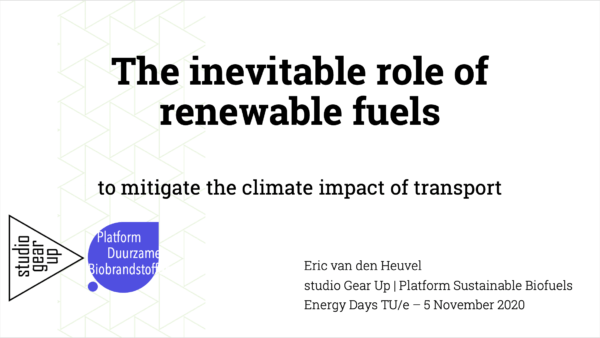November 5, 2020, Eindhoven University of Technology held one of its EnergyDays. The event was organized by the recently founded Eindhoven Institute for Renewable energy Systems (EIRES) and focused on Sustainable Mobility and Transport. View the whole event here.
Richard van de Sanden, director of EIRES and DIFFER, chaired the event in which three speakers touch various aspects on sustainable mobility:
- Maarten Steinbuch, TUe, Professor in Systems and Control and Chair of Control Systems Technology, on the future of Mobility
- Henri Werij, TU Delft, Professor and Dean of the faculty of Aerospace Engineeringing on accelerating the path towards climate-neutral aviation, and
- Eric van den Heuvel, studio Gear Up, Partner, and Netherlands Platform Sustainable Biofuels, Director on the inevitable role of renewable fuels to mitigate the climate impact in the transport sector
You can view the livestream of the EnergyDays-event here.
The PDF of the presentation by Eric van den Heuvel can be downloaded here or by clicking the image on top of this page.




